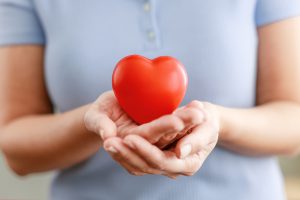 Having a heart attack can be frightening; therefore, it is common for people to experience anxiety, post-traumatic stress disorder (PTSD), or depression after surviving this life-changing event. In fact, the risk of depression is three times higher in heart attack survivors when compared to the general population; more than 25% of survivors experience anxiety after a heart attack, and 1 in 8 heart attack survivors experience symptoms of PTSD.
Having a heart attack can be frightening; therefore, it is common for people to experience anxiety, post-traumatic stress disorder (PTSD), or depression after surviving this life-changing event. In fact, the risk of depression is three times higher in heart attack survivors when compared to the general population; more than 25% of survivors experience anxiety after a heart attack, and 1 in 8 heart attack survivors experience symptoms of PTSD.
Mental health challenges often develop after a cardiac event because there is an uncertainty of things to come or a fear that it can happen again.
Feeling afraid, sad, confused, worried, stressed, or angry is expected in the days or weeks of having survived a heart attack. However, it is important that these emotions are addressed with urgency and managed because they can affect recovery. Untreated stress, anxiety, or depression can lead to physical symptoms such as increased heart rate or blood pressure that put a strain on the heart.
Being aware of these negative emotions and learning how to cope can improve mental health. This can be achieved by identifying triggers and practicing stress or anxiety-reducing exercises such as:
- Speaking to someone about how you feel
- Socializing
- Practicing mindfulness
- Challenging negative thoughts and thinking positively
- Practicing deep breathing
- Practicing gratitude
- Spending time in nature
- Exercising
- Eating well
- Getting enough sleep
In addition to practicing stress management exercises or other coping techniques, it is important to seek the assistance of a mental health provider to create a treatment plan to manage the symptoms of PTSD, anxiety, or depression.
To schedule an appointment with a mental health professional at Jamaica Hospital Medical Center, please call 718-206-5575.
All content of this newsletter is intended for general information purposes only and is not intended or implied to be a substitute for professional medical advice, diagnosis or treatment. Please consult a medical professional before adopting any of the suggestions on this page. You must never disregard professional medical advice or delay seeking medical treatment based upon any content of this newsletter. PROMPTLY CONSULT YOUR PHYSICIAN OR CALL 911 IF YOU BELIEVE YOU HAVE A MEDICAL EMERGENCY.
